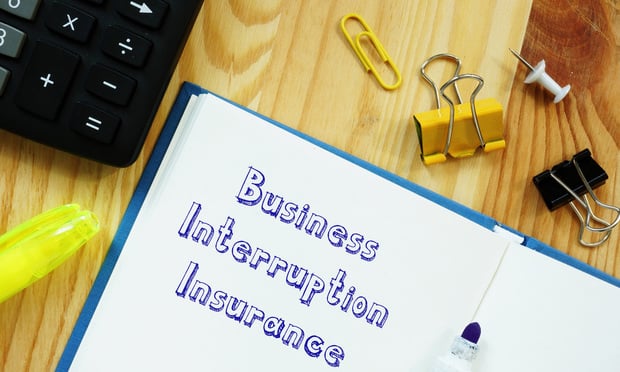(Bloomberg) — A key figure is missing in the court documents outlining the biggest computer attack ever of the U.S. financial system: the actual hacker.
The Israeli mastermind of the crime syndicate with global operations — computer servers in Egypt, online casinos in Ukraine and Hungary, Azerbaijan payment processors and a Florida bitcoin exchange — created a digital mob without a true home country, according to prosecutors. So when the gang needed a hired gun, in this case a sophisticated computer thief, it apparently turned to a harbor known for some of the best.
Related: Hackers accessed global banking with phony pet stores, lies
The hacker, identified only as co-conspirator 1 in a sweeping indictment unsealed on Tuesday, is actually a Russian master of digital break-ins known to federal agents and U.S. spy agencies who have tracked him for years, according to three people familiar with the investigation. Another indictment unsealed this week about the gang provides a little more, citing "a computer hacker who is believed to have resided in Russia" — one who infiltrated computer networks, located customer databases and exported the profile information to computers overseas.
It is not unusual for prosecutors to withhold names in a continuing investigation. But talks about whether to publicly identify the hacker in this case and whether to indict him reached the upper rungs of government. The prospect was the subject of various discussions at one point by officials of the National Security Agency and the White House, according to one person familiar with the matter, who said it was part of a larger debate within the Administration over how best to confront Russia over hacking amid strained U.S. relations.
Weighing options
"I think the government's weighing its options at this point," said Leo Taddeo, a former special agent in charge of the Federal Bureau of Investigation's cyber division in New York who supervised the case before he left in August and who declined to discuss its specifics. Sometimes, the names of co-conspirators are withheld in hopes they won't go into hiding and will be easier to apprehend, said Taddeo, now chief security officer of cybersecurity company Cryptzone Inc. in Waltham, Massachusetts.
That is less of a concern in this hacking case, since the arrest and indictment of other suspects, along with the seizure of e-mails and other communications, have already alerted the hacker that U.S. authorities are on his trail.
The FBI declined to comment on the investigation, as did the White House National Security Council. The NSA didn't respond to requests for comment. The Justice Department, which makes decisions on criminal actions independent of the executive branch, also declined to comment.
Related: 4 big missteps insureds make when choosing a cyber claims provider
The FBI's assessment that the financial hack and related events were purely a criminal caper, not the act of an unfriendly government, has largely been borne out by the investigation.
Still, American intelligence agencies have produced information suggesting co-conspirator 1 may enjoy the protection of the FSB, Russia's main intelligence agency, two people briefed on the matter said. The information is not all consistent. Some intelligence suggests merely that the FSB tried to recruit the hacker, while other information indicates he may have had a more active role in FSB-directed operations, they said.
The hacker's profile helped feed differences of opinion early on about the attacks of some of Wall Street's biggest names. For months after the disclosure of a big systems breach last summer, JPMorgan Chase & Co. officials maintained the attack on the bank should be treated as a national security incident.
"Proving that a nation-state was not involved in this is very, very difficult, if not impossible," Taddeo said, adding that the indictment lays out a clear criminal motivation, not a national campaign.

(Photo: Thinkstock)
Going undetected
Co-conspirator 1's shadowy talents are on display throughout the two indictments, one in federal court in New York and the other in Atlanta. He appears to infiltrate some American financial institutions with ease, operating undetected inside their heavily secured computer banks for months or years.
Targeted companies included Fidelity Investments, E*Trade Financial Corp., Scottrade Financial Services Inc., Dow Jones & Co., as well as JPMorgan Chase, which alone spends more than half a billion dollars annually to secure its computers. Fidelity is the one company in this group that has said it has no indication any customer information was taken from its network.
Some of the targets were chosen by Gery Shalon, the Israeli who was the mastermind of the criminal organization spanning bitcoin companies, Internet gambling sites and securities manipulation before his arrest last summer, according to the criminal indictments.
Transcripts of e-mail communications show Shalon trying to explain the rudiments of pump-and-dump stock schemes to the hacker, telling co-conspirator 1 — in presumably familiar terms — that buying stocks in America is like "drinking freaking vodka in Russia."
Specialists say co-conspirator 1 may have done more than what Shalon ordered and point out that he remained in the computers of some companies for years, even though e-mail addresses and such can be spirited away quickly.
For example, when disclosing that some customer payment information may have been compromised in October, Dow Jones said that the unauthorized access to its systems occurred at certain times over three years.
Dead end
Data stolen from the targets might also have been shared with others in Russia, if that is where the hacker is working, for his own protection, said Tom Kellermann, chief cybersecurity officer for Trend Micro Inc. "This is not over," Kellermann said. "The real question now is how many backdoors are still in these systems that have yet to be detected."
U.S. authorities almost always hit a dead end, Taddeo said, when an investigation leads to Russia.
Related: Cyber attacks drive insurance purchases in early 2015
With Shalon and some other suspects in custody, however, prosecutors may be able to plumb the inner workings of Russia's elite cyber underground. At least two of Shalon's alleged associates, Joshua Aaron and bitcoin operator Anthony Murgio, traveled extensively to Russia and could have met the hacker in person.
Aaron remains a fugitive, but pictures posted to his wife's social media account just before Shalon's arrest in July put his last location in St. Petersburg, Russia.
Shalon and Aaron couldn't be reached for comment and Gregory Kehoe, a lawyer representing Murgio, didn't return a phone message.
The two people familiar with the case said it is unclear if prosecutors are still considering charges against co-conspirator 1 for hacking and related crimes. He could be indicted even though Russia does not extradite its citizens to the West.
President Barack Obama could also use new executive powers to seize assets and impose other sanctions on foreign nationals involved in cybercrime, measures the White House has yet to tap despite a run of high-profile hacks on companies and agencies.
_____________________________
How can you transform your risk management preparedness and response strategy into a competitive advantage?
Introducing ALM's cyberSecure — A two-day event designed to provide the insights and connections necessary to implement a preparedness and response strategy that changes the conversation from financial risk to competitive advantage. Learn more about how this inaugural event can help you reduce risk and add business value.
Want to continue reading?
Become a Free PropertyCasualty360 Digital Reader
Your access to unlimited PropertyCasualty360 content isn’t changing.
Once you are an ALM digital member, you’ll receive:
- Breaking insurance news and analysis, on-site and via our newsletters and custom alerts
- Weekly Insurance Speak podcast featuring exclusive interviews with industry leaders
- Educational webcasts, white papers, and ebooks from industry thought leaders
- Critical converage of the employee benefits and financial advisory markets on our other ALM sites, BenefitsPRO and ThinkAdvisor
Already have an account? Sign In Now
© 2025 ALM Global, LLC, All Rights Reserved. Request academic re-use from www.copyright.com. All other uses, submit a request to [email protected]. For more information visit Asset & Logo Licensing.








